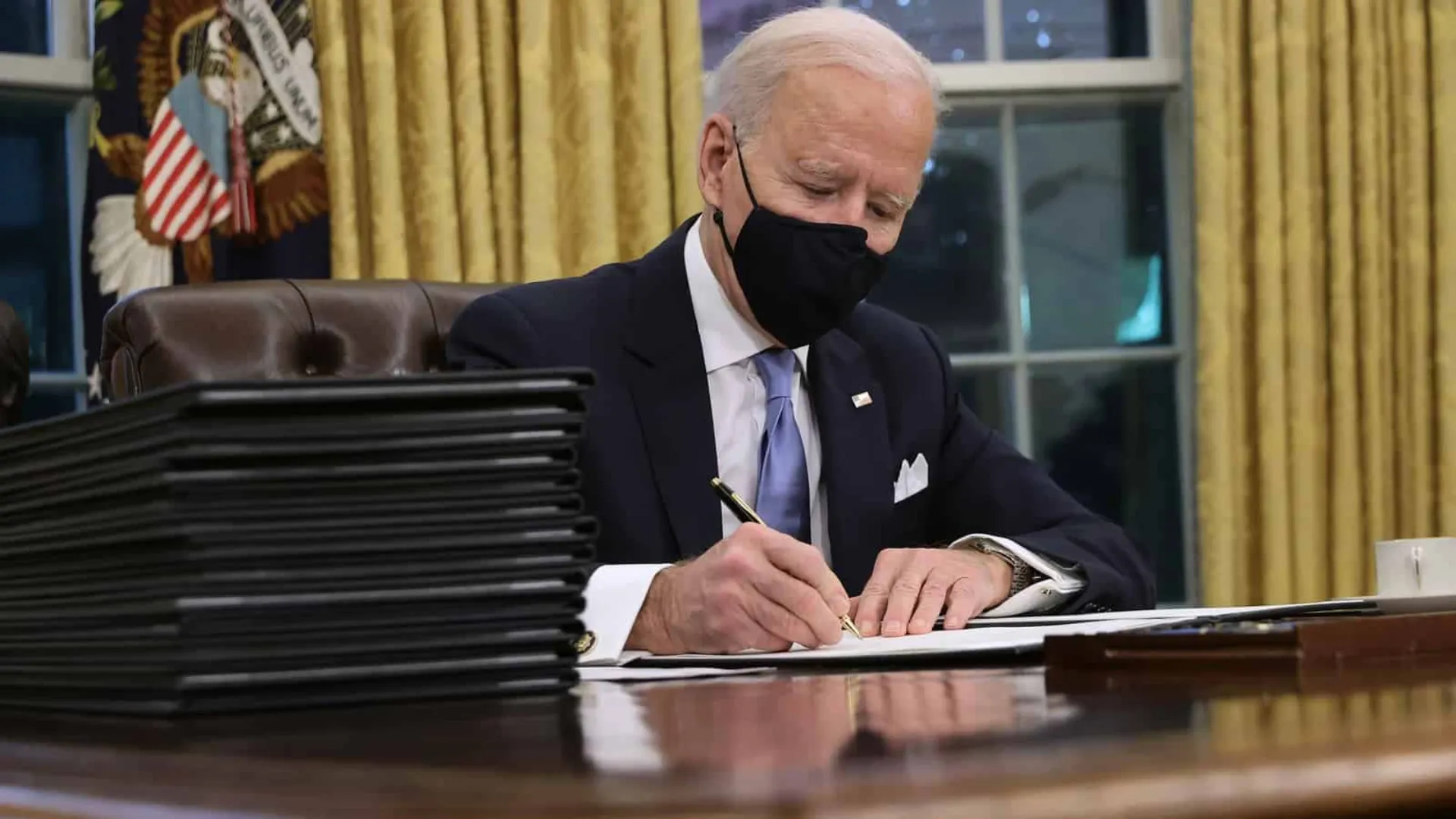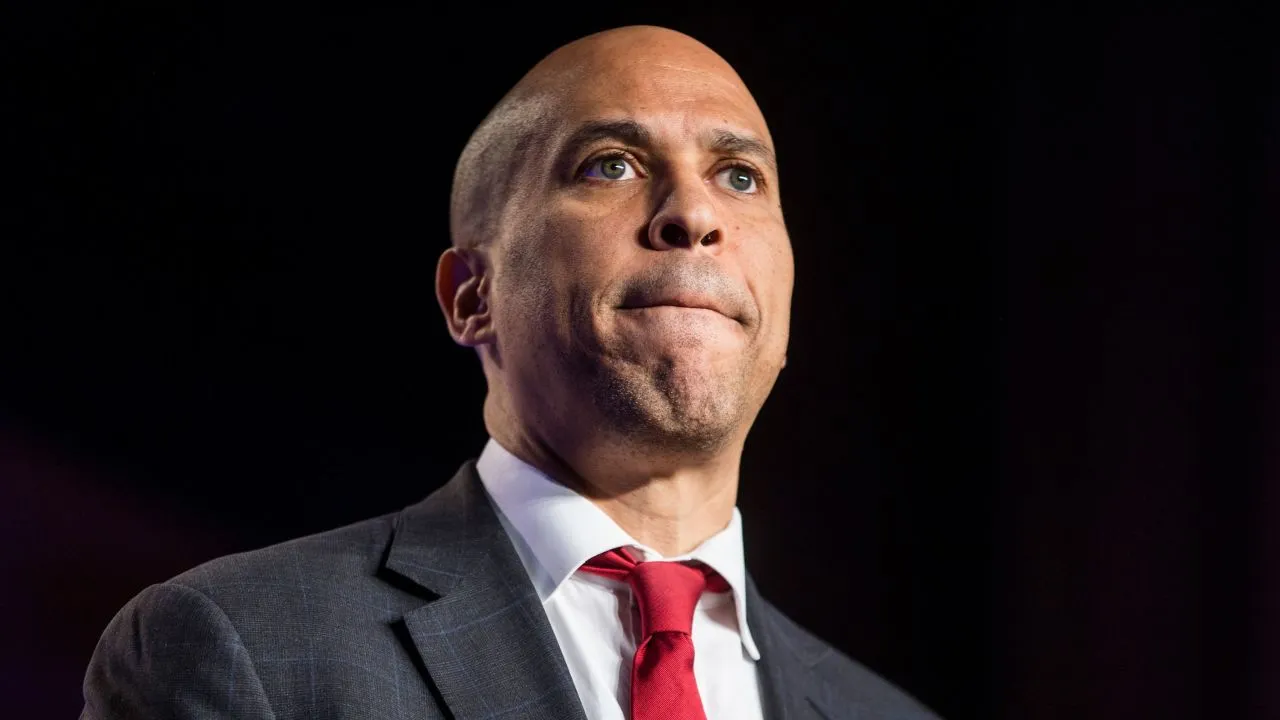Two major law firms, Jenner & Block and WilmerHale, filed lawsuits against the Trump administration on Friday in response to a series of executive orders signed by President Trump. These orders are aimed at penalizing large law firms with connections to the president’s critics and those whom he perceives as political adversaries.
The legal action taken by these prominent law firms represents the latest chapter in a growing battle between the Trump administration and legal institutions that have been critical of the president, particularly those involved in special investigations into his administration.
Trump’s executive orders, signed earlier this week, are seen as an unprecedented move in targeting the legal profession, with the potential to significantly impact the firms’ business operations and the professional lives of their attorneys.
The executive orders target two firms in particular: Jenner & Block, which employed Andrew Weissmann, a former federal prosecutor and a vocal critic of Trump’s administration, and WilmerHale, which had the former special counsel Robert Mueller on its staff before and after his tenure overseeing the Russia investigation.
The lawsuits from both law firms argue that these orders violate constitutional protections related to free speech, legal representation, and the right to association. According to the lawsuits, the executive orders single out law firms and lawyers based on their political affiliations and the clients they represent, a tactic that is seen as targeting citizens and legal professionals because of their opinions or the people they choose to work with.
Jenner & Block filed its lawsuit after the president signed an executive order targeting the firm on Tuesday. The order specifically mentioned Jenner & Block’s past employment of Andrew Weissmann, a former prosecutor who played a central role in Robert Mueller’s investigation into Russian interference in the 2016 U.S. presidential election.
Weissmann has become a well-known critic of Trump, and his involvement in the investigation has made him a frequent target of the president’s ire.
“The Constitution, top to bottom, protects against such attempts by the government to target citizens and lawyers based on the opinions they voice, the people with whom they associate, and the clients they represent,” the lawsuit states, arguing that the executive orders violate the First Amendment protections against government actions that punish individuals for their speech and association.
A similar executive order was signed on Thursday targeting WilmerHale. The firm is well-known for having Robert Mueller as a partner before and after his high-profile role as special counsel.
Mueller’s investigation into possible Russian interference in the 2016 election was a major source of controversy, with Trump constantly denouncing the probe as a “witch hunt.” WilmerHale’s involvement in Mueller’s investigation has made it a target for the president, who has long been vocal about his disdain for the investigation and its conclusions.

Both orders, which affect Jenner & Block and WilmerHale, aim to restrict the firms’ access to government contracts, security clearances for their lawyers, and the ability of their attorneys to enter government buildings. These measures could have a serious and lasting impact on the operations of both law firms, making it more difficult for them to conduct business, particularly in relation to government work.
The consequences of these executive orders are far-reaching. WilmerHale, in its lawsuit, argued that the order targeting the firm would cause “extensive, lasting damage” to its business prospects. “It will severely hinder the Firm’s ability to effectively serve its clients—the lifeblood of any law firm.
And, by design, it discourages clients from retaining or maintaining WilmerHale as their counsel,” the firm wrote in its legal complaint.
These orders represent just one part of a broader set of measures targeting law firms that have been critical of the Trump administration. The president has signed several similar executive orders aimed at other prominent law firms, including Covington, Perkins Coie, and Paul Weiss. These actions are part of an ongoing strategy to penalize individuals and organizations that the president sees as political enemies.
Before this latest round of lawsuits, only Perkins Coie had previously sued the administration over its executive order. In that case, a federal judge temporarily blocked parts of the order, and the litigation continues. Paul Weiss, in contrast, reached a settlement with the Trump administration that included a commitment to spend $40 million on pro bono work that aligns with the president’s political goals.
The new lawsuits filed by Jenner & Block and WilmerHale are being led by outside counsel. Jenner & Block is being represented by Cooley, a law firm known for its work in corporate law, while WilmerHale is represented by Clement & Murphy, a well-known conservative law firm that has a track record of representing high-profile clients in politically sensitive cases.
Both Jenner & Block and WilmerHale have requested that their new lawsuits be assigned to U.S. District Judge Beryl Howell, who is overseeing the Perkins Coie case. Judge Howell, who was appointed by former President Obama, has played a significant role in overseeing these legal challenges to the Trump administration’s executive orders.
However, Judge Howell rejected the request to consolidate the cases, noting that while the executive orders share similar features, the facts of each case differ. In her ruling, Howell explained that the punitive measures imposed on Perkins Coie stemmed solely from the firm’s representation of clients disliked by the president.
In contrast, the punitive measures targeting Jenner & Block involve not just the firm’s clients but also the work of a former partner who had worked on matters at the U.S. Department of Justice while not affiliated with the firm at the time.
“Although both law firms are being targeted in similar ways in these separate Executive Orders, the facts of each case differ: the punitive measures imposed on Perkins Coie arise solely from the firm’s representation of clients disliked by the President, while the punitive measures imposed on Jenner & Block in this new case arise, in part, from the firm’s representation of clients disliked by the President but also, in part, from professional work performed at the United States Department of Justice by a former Jenner & Block partner who was not affiliated with the law firm at the time of the work to which the President objects,” Judge Howell wrote.
This decision underscores the complexities of the legal challenges, as each case presents its own unique set of facts and legal questions, despite the similar nature of the executive orders themselves.
The lawsuits filed by Jenner & Block and WilmerHale are a stark reminder of the growing influence that political power is exerting on the legal system. The Trump administration’s attempts to use executive orders to target law firms that have been critical of the president represent a new and potentially dangerous precedent for political interference in the legal profession.
These actions also raise serious questions about the extent to which the government can use its authority to punish individuals or organizations based on their political views and affiliations. Critics of the executive orders argue that they represent an unconstitutional attack on free speech and the independence of the legal profession, which plays a critical role in holding the government accountable.
The growing tension between the Trump administration and the legal community is likely to continue as more law firms and legal professionals speak out against the president’s actions. The outcome of these lawsuits could have far-reaching implications for the future of the legal profession and the relationship between politics and the judiciary.
As the lawsuits from Jenner & Block and WilmerHale move forward, the legal profession will be watching closely to see how the courts respond to these challenges. The outcome of these cases could set important precedents for how the government interacts with the legal community and how it treats law firms and lawyers who challenge its policies.
For Jenner & Block, WilmerHale, and other law firms that may face similar executive orders in the future, the stakes could not be higher. These legal battles are about more than just their business interests—they are about the broader principles of freedom of speech, legal representation, and the independence of the judiciary.
The coming months will be critical in determining how the courts navigate this unprecedented challenge and whether the Trump administration will be allowed to continue using executive orders to punish its critics.






